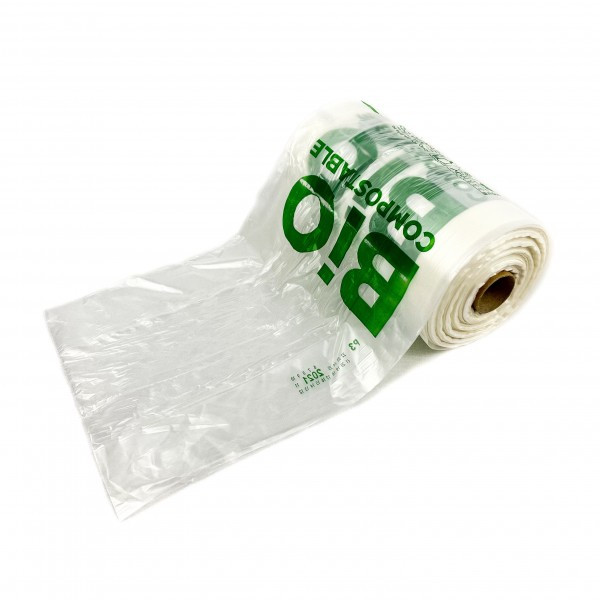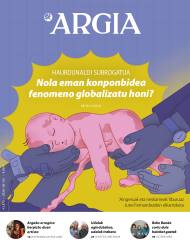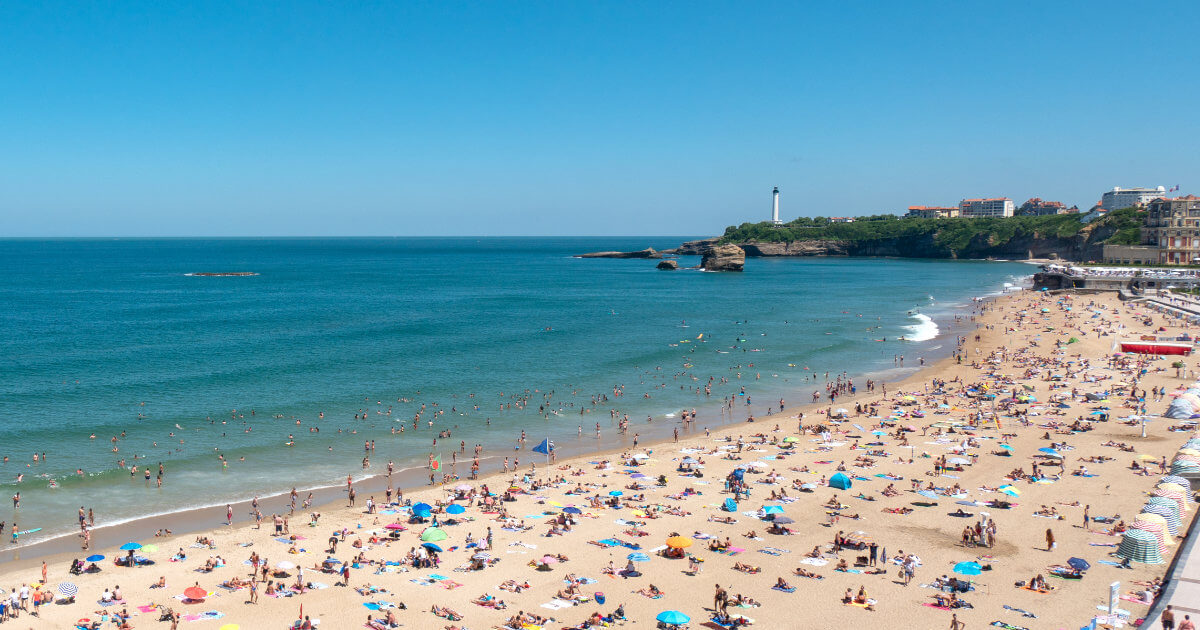Does it benefit or harm the environment?
- Compostable plastic bags are more toxic than usual in Elhuyar in October last year. The news, which was based on an investigation by experts from the Spanish Higher Council of Scientific Research (CSIC), sparked a great stir. Garazi Zabaleta went to Patxi Sustatxa, a member of the biodegradable and compostable film company Titan Eco Sustainable de Zamudio, to clarify the issue.

In recent years, European countries have embarked on the path towards a gradual substitution of the massive use of plastic and towards supposedly more sustainable consumption. Compostable bags and wrapping are more and more frequent in the shops of the area, although the realm of plastic remains in force, and in society there seems to be an increasing awareness of it.
But, all of a sudden, research puts it all in doubt: Compostable plastic bags are more toxic than usual in Elhuyar magazine and on the web. In addition to Euskadi, also outside Euskal Herria there was a great stir, as the news was based on an investigation published in September by experts of the Superior Council of Scientific Research (CSIC) and therefore had credibility. “What do we do then to remove the plastic?” many would ask, once the news was read.
It is true, and perhaps it was not so widespread, that CSIC itself, in order to clarify the matter, published an explanation two months later, in November last year: “Due to the media impact of the previous press release and in order not to harm social change in compostable biodegradable materials, the CSIC wishes to clarify that the study has not demonstrated that certified compostable bags are toxic to food transport or compost obtained from them.” Beyond media noise, and with the aim of deepening the issue, we have talked with Patxi Sustatxa, a member of the biodegradable and compostable film company Titan Eco Sustainable de Zamudio.
Compostables, recyclables, biodegradables… clarifying the conceptual salsa
“Concepts are often confused, and sometimes customers use the words ‘biodegradable’, ‘compostable’ or ‘recycled’ as if they were the same,” says Sustatxa. We ask you to explain to us what each of them consists of.
Recycled material consists of transforming one product into another through a physical process. In the case of bags and packaging, the recycled material normally comes from plastic: old plastic is taken, chips are made and with these chips another container or bag is created.
“Compostable material complying with European regulations does not generate pollution”
Compostable material has its origin in plants, and they're not recycled, but they take value for another use. “The ultimate goal of his life is not to make chips to create another material, but to make compost. It is a circular model, which originates in the earth and goes to the earth at the end of the cycle.” Compostable plastics may be made from materials with PLA – polylactic acid – for example. These products come from maize or sugar beet.
The word biodegradable, as Sustatxa underlined, in itself does not mean anything. Biodegradation is a natural process until a product becomes completely degraded. “Here’s the time factor, because it’s useless to say that a product is biodegradable if it needs 400 years, like plastics,” he says. As a complaint, unsustainable companies use this and many words to bleach – or rather to leveling – in some way.
On the other hand, it should be noted that all bioplastics from plants, known in Spanish as ‘bio-university’ or ‘bio-based’, do not have to be compostable. In other words, bio-based plastics are only fixed at source and compostable at the end of their lives. Polyethylene (known as PET) may have plant origin, for example, in sugarcane derivatives, but is not biodegradable, as environmental microorganisms do not have the ability to compost this material.
Lights and shadows of research
The study, published in September, measured the toxicity of biodegradable bags, normal plastic bags and recycled from data obtained from zebra fish cell lines. The degree of toxicity was measured in three situations: directly from bag samples; bag aging after simulation by ultraviolet photodegradation; and with small portions of the bags left after composting. “We were surprised that cells exposed to normal plastic bags did not show toxicity, and they did so in the case of biodedrables,” explained Tape Porte, the lead author of the study. The research concludes that, like biodegradables, recycled bags are also more toxic than conventional bags.
But the researcher added: “Our hypothesis is that manufacturers add chemical additives that can be especially toxic when manufacturing biodegradable bags.” Another aspect that Sustatxa highlights when asking about the research results is as follows: “To begin with, it has to be borne in mind that this was a preliminary report, which needed to be further elaborated. But they also said that biodegradable material is not a problem in itself, but added chemical additives.”
The Biscayan businessman has stressed that most of the biodegradable film is imported from outside and that no control is carried out. The authors of the research did not specify which bags were used as a sample of the remains found in the cave. “Imagine that a fast food company issues a report stating that tomatoes are more harmful to health than hamburgers, because they have conducted a study of tomatoes and concluded that they have many contaminants. But have the tomatoes analysed been produced in accordance with European regulations? Because, if they do not, and if they have much more plant protection than is regulated… of course they are harmful,” he said. Something similar happens with biodegradable bags and packaging, according to him.
Production of compostable material by multinationals
According to the manager of the company Titan Eco Sustainable, there is a brutal mismatch in the control of the biodegradable film that is brought from abroad: “In 2018, the one-use plastic limitation law came into force, and although the use was initially greatly reduced, it has already lost effectiveness, because the law is not complied with, because no follow-up is done.” The law limits, in theory, the use of plastic bags from shops, but Sustatxa says that nowadays very few fill them. “Department stores fill it up more and less. In general, trade has returned to conventional polyethylene, nor to recycling,” he added.
Vizcaine states that the compostable film produced in the countries of the European Union generally respects EU 13432. This standard is the regulation that establishes the measures to be complied with by compostable bags and packaging: “Basically, the standard states that the product should be degraded in less than six months and that it should only leave water, CO2 and compost in the degradation process,” Sustatxa explained.
There are different certifiers to ensure compliance with the standard, but the entrepreneur says that the best known in Europe is TUV Austria. “However, certifying ourselves is not obligatory, we do so to gain confidence. We, for example, bought a certified product,” he said. In fact, the Zamudio plant does not produce biodegradable films, but is limited to transformation. The manager stressed that production is in the hands of multinationals and large companies, mainly multinationals. “We are limited to mechanization, but at source they are all large companies that work with conventional plastic and compostable.”
In a way, companies that have seen business opportunities in the energy transition and in the green economy are also leaders in this compostable market.
Compared to plastic islands...
According to Greenpeace, every year more than 12 million tons of plastic end up in the sea, all of them with images of the large islands populated with plastics in the head. And among plastics, plastic bags are some of the most widespread. In the Spanish state it is estimated that, on average, each person pulls 144 single-use plastic bags a year, each of which has a reduced life of 12 minutes. In terms of degradation, it's been over five decades.
"What's the problem with plastic? That the percentage of plastics that are not recycled or reused is very high, which is left out in nature. That is, it is produced much more than the number of plastics that are recycled, and it generates tons of plastic waste.” Instead, if they were compostable, thousands of tons of plastic left in nature would degrade within a few years and become compost. “There is no doubt that bioplastics are much more sustainable than they have been up to now, but the truth is that it is much more difficult to accept in society the new alternatives that arise. It is enough that these alternatives have a small mistake for them to be rejected.” Sustatxa, within this social behavior, also places the impact of the reflight generated by the September study.
So ... To the compostable bag hut, yes or no?
Sustatxa has recalled that composting is an artificial degradation process, as it generates a culture licocide for the bacteria that will eat the product. Industrial composting achieves a more bacterial growth fluid and higher temperatures, so the process is more intense. “Everything that can be composted at home is composed of industrial plants, but not the other way around,” he says. He adds, however, that most films using Titan Eco Sustainable, as they are a fine material, also work in domestic composting. “The issue is that the most common composting model in the Spanish State is industrial, so the most widely used label is the ‘industrial compost’.” Most of the bags would also compost well at home, but other compostable materials, glasses or cutlery, work only in industrial plants. “Well, they would also eat at home, but they would need more time, and EU13432 sets a limit of six months.”
European and Western societies are far from sustainable lives, and only by reducing the use of conventional plastic and increasing the most compostable will we not respond to the current climate and social challenges. However, Sustatxa is clear that compostable bags and packaging have been a major step towards sustainability. “Compostable material complying with European regulations does not generate pollution,” he concluded.
Apparently, the fire originated on 13 July in Errenteria's home originated in the battery of an electric scooter. On this occasion, and fortunately, there was only material damage. However, don’t think this accident is an unusual thing, lately, firefighters are busy with this... [+]
The eco-social crisis generated by capitalism is causing global unrest across the planet. The "summits" of material and energy resources, establishing limits for growth and accumulation, entail imbalances between nature and society. The crazy wheels of extractivism, climate change... [+]






















